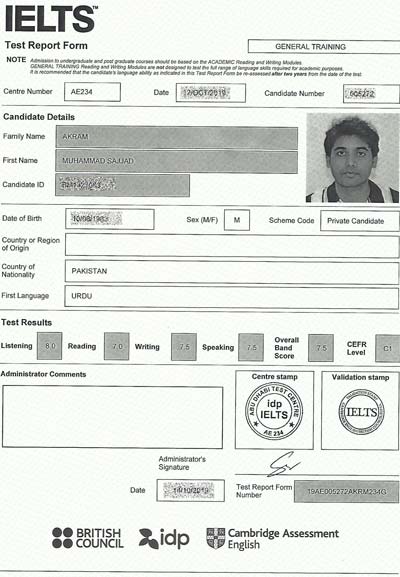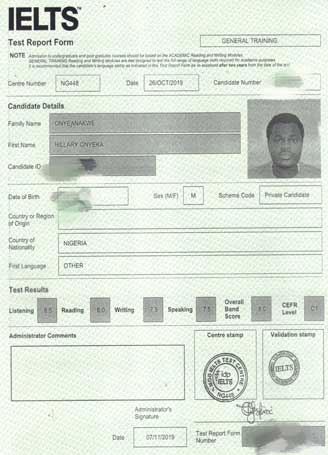Muhammad’s journey to IELTS Band 7.5
Hi everyone, and welcome to 2020! Starting the year off right is incredibly important, and inspiration can help with that – so today we would like you to meet Muhammad, who has an inspiring story to tell.
But it’s not just Muhammad’s IELTS tips that you can grab here. He said something deep that can be considered a principle to live by: “I was not afraid of making mistakes at all because the English language is not my mother language; therefore, it is inevitable that I would make mistakes.”
Don’t let the fear of making mistakes stop you. Make ALL the mistakes you can, but learn from them, and use every single one as an opportunity to improve!

Muhammad said:
“I was struggling to obtain 7.5 band in writing for the past two years. After consulting three native English teachers (face-to-face), and one online web portal, still, I was unable to get there.
In June I took an essay correction package on IELTS-Blog.com, which was the right step towards my goal, as IELTS-Blog teachers identified my weak areas and helped me to improve. Although in August I acquired Band 7 in writing, unfortunately, I missed in gaining the required score in listening – Band 8. Therefore, I practised again, and in October I got my desired results: Listening 8, Reading 7, Writing 7.5, Speaking 7.5. I believe the key to success is to practice and expert and reliable source, like IELTS-Blog.com.
I would like to share my study schedule with other students to reach this milestone.
1. I made it my habit to listen to an English podcast every day for at least 1 hour (anyone can do this during a travelling to office etc., all you need is headphones).
2. I was reading at least two pages of the English articles (news, opinion, general topics, The Guardian newspaper is the best one), and I was highlighting articles (a, an, the) as well as new words to enhance my vocabulary. In fact, I have a vocabulary book. I was trying to understanding why the articles (a, an, the) are there or not there. Reading also enabled me to understand the writing structure in general. I was doing it only for half an hour.
3. I was completing a listening test almost every day. It helped me to understand the pace of listening, which is crucial for the actual exam.
4. I was writing an essay every day five days a week, and two days I was taking time off for my family and relaxation. After receiving my corrections from IELTS-Blog.com, I was spending time to understand what mistakes I had made, which is essential to avoid those mistakes. This action is compulsory to boost your writing skill. This is the most important task to reach another level.
5. “1200-commonly-repeated-words-in-ielts-listening-test” is a document available online which has lots of vocabulary words. I have attempted many IELTS mock tests, and it is my personal experience that most of the words in the listening test are there in this document.
The most important thing, I implemented English learning in my daily routine, whether it is email writing or a test message. I always try to write in formal English with all the necessary punctuation, articles and so on. I was not afraid of making mistakes at all because the English language is not my mother language; therefore, it is inevitable that I would make mistakes. The compelling aspect is that we should enjoy learning it, instead of feeling the pressure. Don’t learn English only for the sake of obtaining a good score in IELTS, but learn it as a language, which is essential for your career and future.
All the best for all the students out there!”


